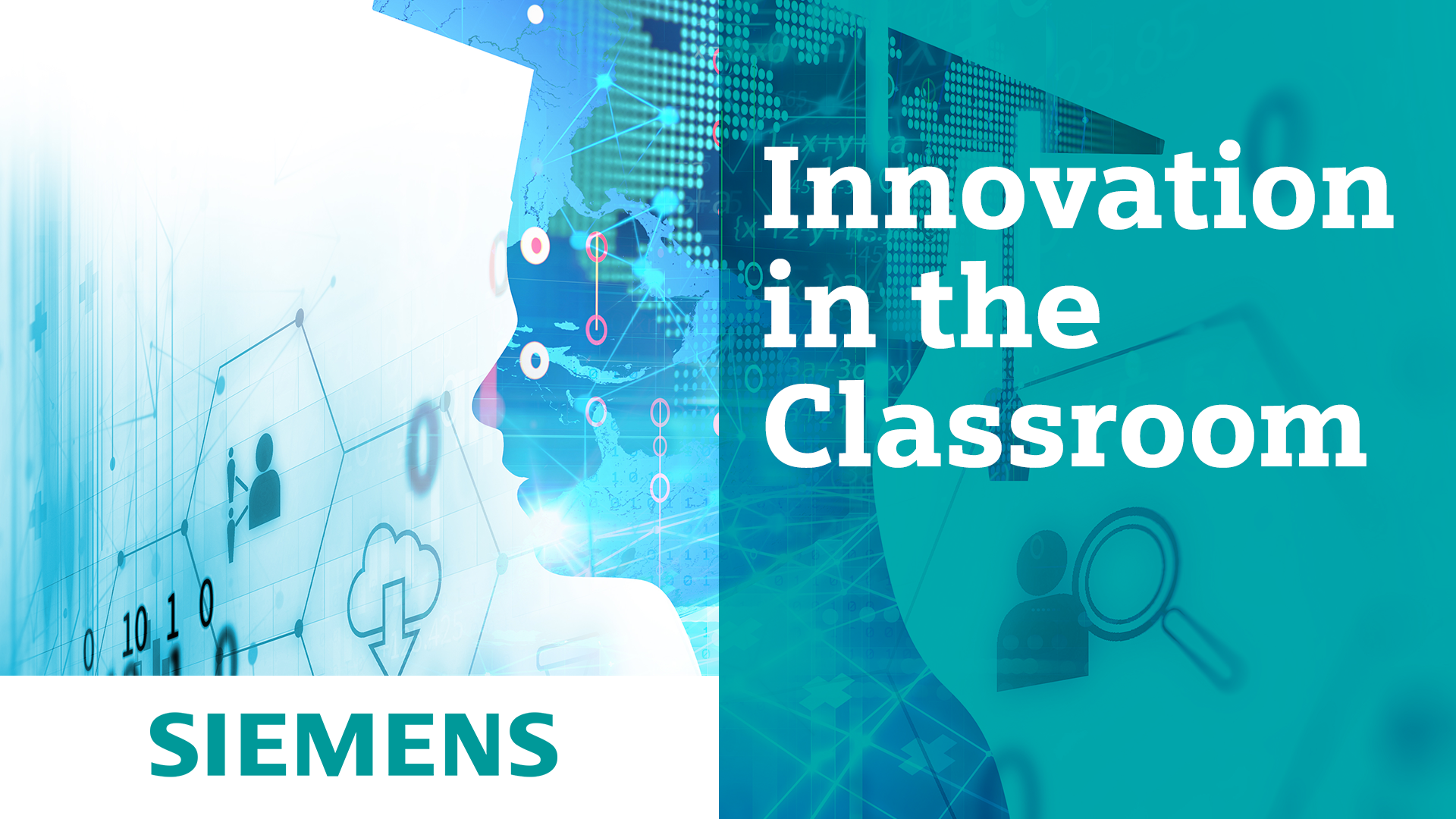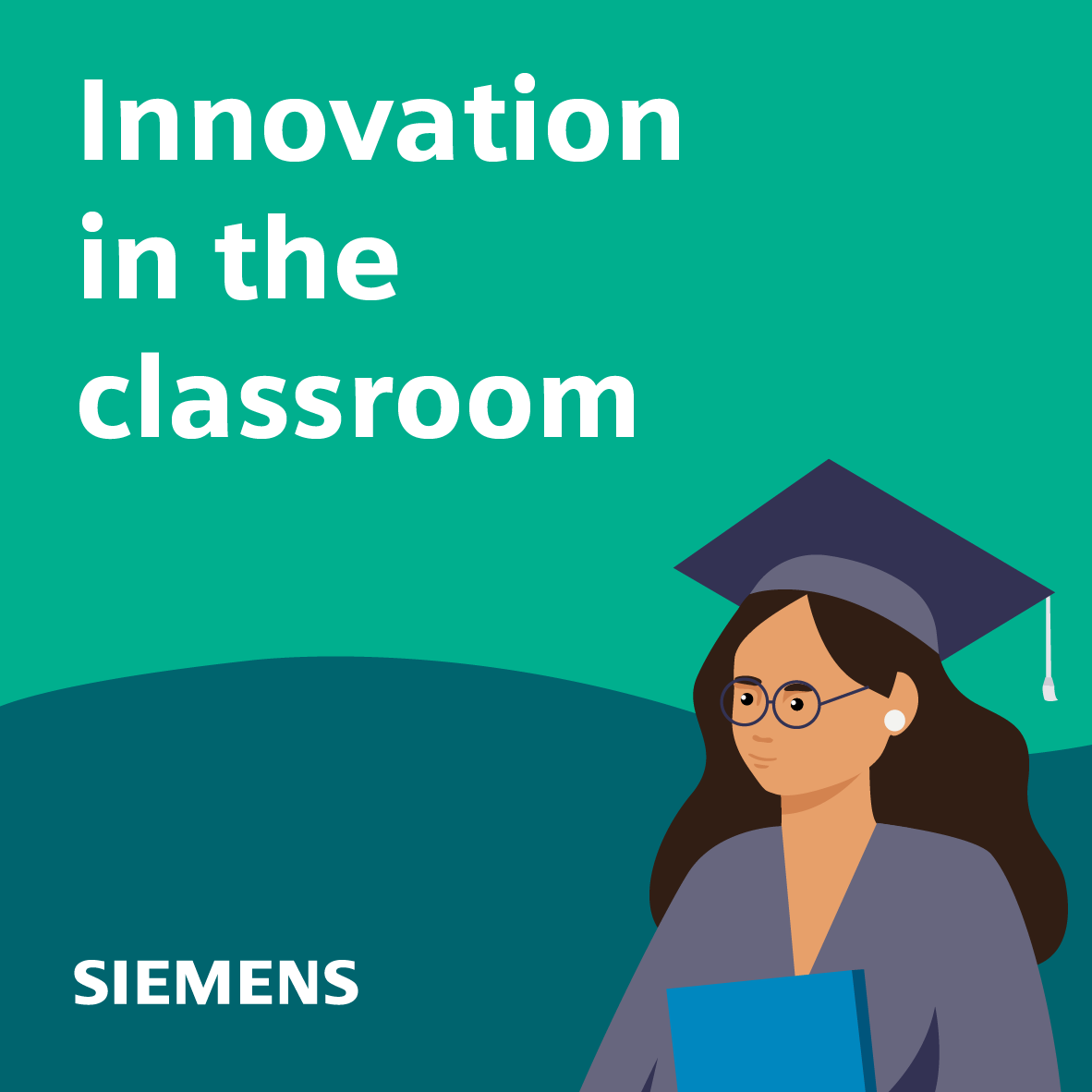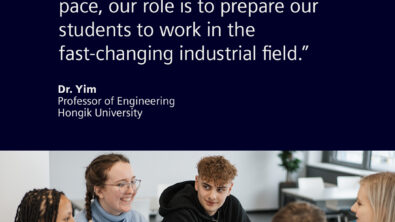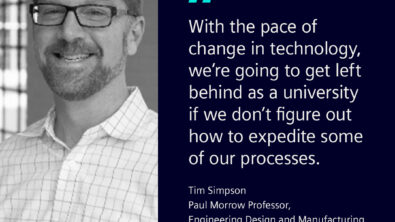Bridging the Gap between Industry and Academia

What first comes to mind when you hear “experiential learning?” In what fundamental ways does this kind of learning differ from the “traditional” method, specifically when it comes to engineering? How can we bridge the gap between learning in a traditional setting and practices in the industry? How can we rework or reform the traditional educational experience to become an innovative teaching curriculum?
On this episode of Innovation in the Classroom, our host Dora Smith sits down with William (Bill) Oakes, award-winning engineering educator and EPICS (Engineering Projects and Community Service) director at Purdue University. Since its establishment in 1995, Purdue University’s EPICS program has aimed to provide experiential learning to its students by partnering them with local, regional, and global communities to address, and assist with, their needs.
When asked about Bill’s thoughts on the gap between industry and academia, he accounts that “if you look in the industry and academic spaces, we don’t really understand each other on both sides. We’re really trying to provide students with fundamental skills so that they’ll be able to do those on one side and the motivation to see that there’s applications.” The goal and success of the EPICS program are to bridge the gap between the two spaces.
The EPICS Curriculum
The innovation of the EPICS curriculum is to engage students in engineering-based community projects based on the needs of the community. It is a multidisciplinary curriculum that runs about 12 or 1300 students through different design courses. One of the innovations is that the course counts as half of a class judged based on credit hours. Students may take EPICS for one or two credits, whereas a traditional technical elective in engineering would be three credits. As long-term ongoing projects, students need to take EPICS courses for at least two semesters, breaking the mindset that they need to do everything in 15 weeks.
EPICS Increases Diversity
EPICS has played a role in recruiting a more diverse group of engineering students from a multitude of backgrounds. Through hands-on project experiences, students can see the applications of engineering to target the problems they care about. Unleashing this interest in engineering can help racial and gender diversity in the engineering field and later in industry recruitment.
EPICS vs. Traditional Learning Standards and Goals
Bill then explained how EPICS grading standards are set based on industry requirements. Grading in EPICS is set to mirror industry standards and is based on 5 criteria: accomplishments, process, reflective, critical thinking, teamwork and leadership, and communication, unlike the traditional learning experience expectations. The students need to set goals for their team at the beginning of the semester. Students are evaluated based on goal completion, progress made, and demonstration of understanding and design application in their projects. The EPICS program is a professional preparation experience based on performance review evaluation compared to traditional educational experience based on lectures and grading.
EPICS practices simulated what students later did in their careers compared to test-taking skills in the traditional learning environment. Through experiential learning, students made more mistakes in the program and fewer out in the industry. The community projects allowed students to connect how the applied engineering skills can directly impact others.
The young people today are amazing. I worry that we’re really not preparing them, but you got to give them something they’re interested in. And these kinds of things, the students, when they get interested in these, they just take things and run with them and do some pretty amazing thing.
William (Bill) Oaks, engineering educator and EPICS director at Purdue University
Tune into the full episode to learn more about the EPICS program and how “experiential learning” can bridge the gap between industry and academia. If you’re interested in learning more about Purdue’s EPICS program, head over to engineering.purdue.edu/EPICS. Stay tuned to Innovation In The Classroom and subscribe to the series.

Innovation in the Classroom Podcast
Innovation in the Classroom by Siemens explores best practices to empower the next generation of digital talent. In this podcast series, Dora Smith takes you through discussions with leading voices from the world of engineering education who are preparing future engineers in Academia 4.0 to shape the world of innovation.


